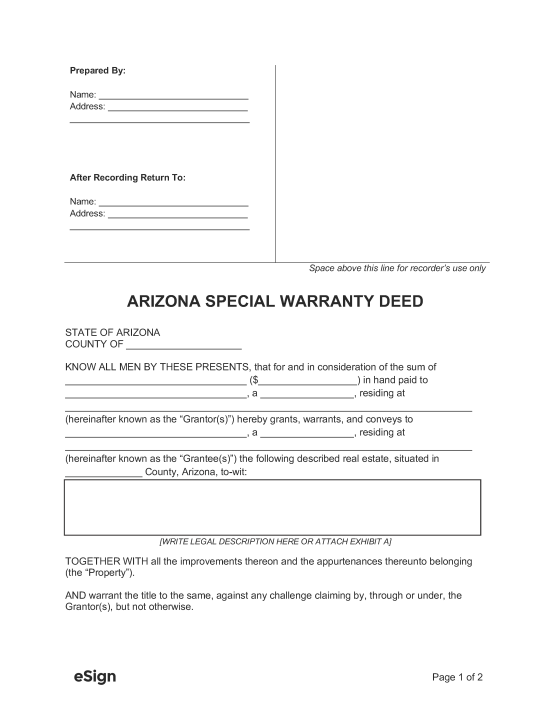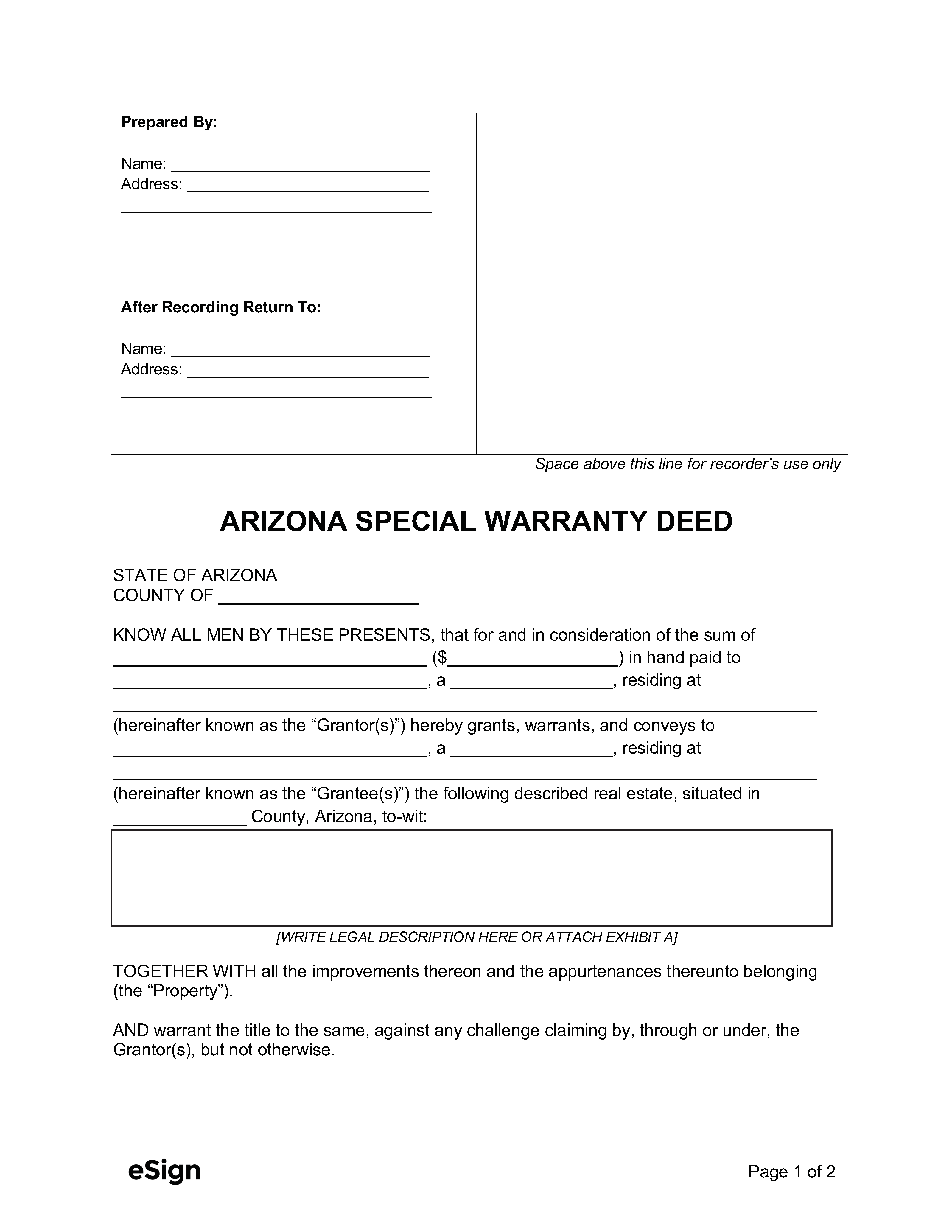Recording Requirements
- The grantor and a notary public must sign the deed.[1]
- The top margin of the first page must be at least 2″, the return address and preparer’s information may be placed in the left 3.5″ of this section. All other margins must be at least 1/2″.[2]
- The font must be at least 10pt
- The page size must be no larger than 8.5″ x 11″.
Once completed and signed, the deed must be taken to the County Recorder’s Office with the $30 fee to be recorded.[3]
Special Warranty Deed (Preview)
Additional Forms
Affidavit of Property Value – This document is used by the Department of Revenue to ensure property is valued fairly and consistently for tax purposes. This must be included when recording a deed unless the conveyance is exempt.[4]

